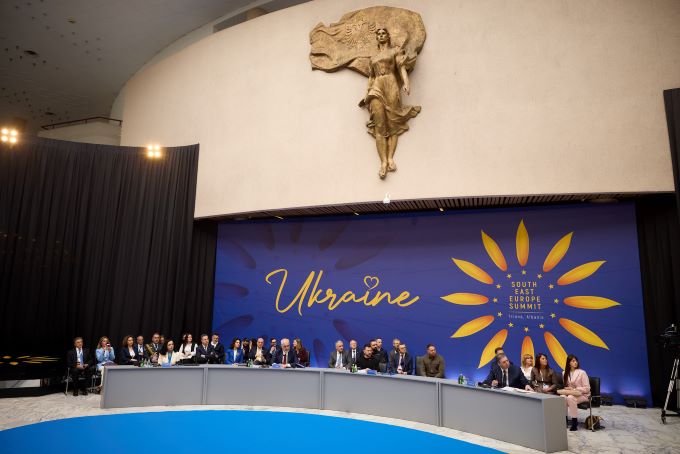Ukrainian President Volodymyr Zelenskyy urged countries in South-East Europe to help his country with crucial support in its fight against Russia as war weariness starts to creep in after two years of war.
Zelenskyy made his plea at a summit in Albania with eleven countries from South-East Europe, plus officials from European Union and other international organizations. He was coming on the back of a visit to Saudi Arabia, where he held talks for possible peace plans and for the return of prisoners of war.
In particular, Zelenskyy admitted that Ukraine needs help with supply of ammunition and other armaments, as “problems with the supply” is already having an impact on the battlefield, where Russia managed to conquer the strategic city of Avdiivka and its pushing the Ukrainian army out of surrounding villages. Russia is also attacking from the northern part of the frontline in Kharkiv region.
Zelenskyy warned the countries present at the summit about Russia and its war weariness: “the interaction between us, between neighbours, between neighbouring regions, between all partners, has become a factor that along with the resilience of our people in Ukraine, does not allow Putin to prevail.”
He also pledged the cause of the countries in Western Balkans to enter the European Union and NATO, saying that “the European Union and NATO have provided Europe with the longest and most reliable era of security and economic development, and we are all equally worthy of being a part of the European and Euro-Atlantic communities.”
However, not every country present at the summit was supportive. Serbia, the only European country to refuse sanctions against Russia, was present and its president Aleksandar Vucic insisted on a summit statement void of any call for sanctions against Russia and of negative mentions on Russia’s influence in the region.
The summit’s host country Albania on the other hand remains strong pro-Ukraine. The country is already a NATO member and since the beginning of the war has helped Ukraine with military assistance and sheltering for refugees. Also, during its recent tenure of non-permanent security council member at the United Nations, it supported US resolutions against Russia’s invasion.

